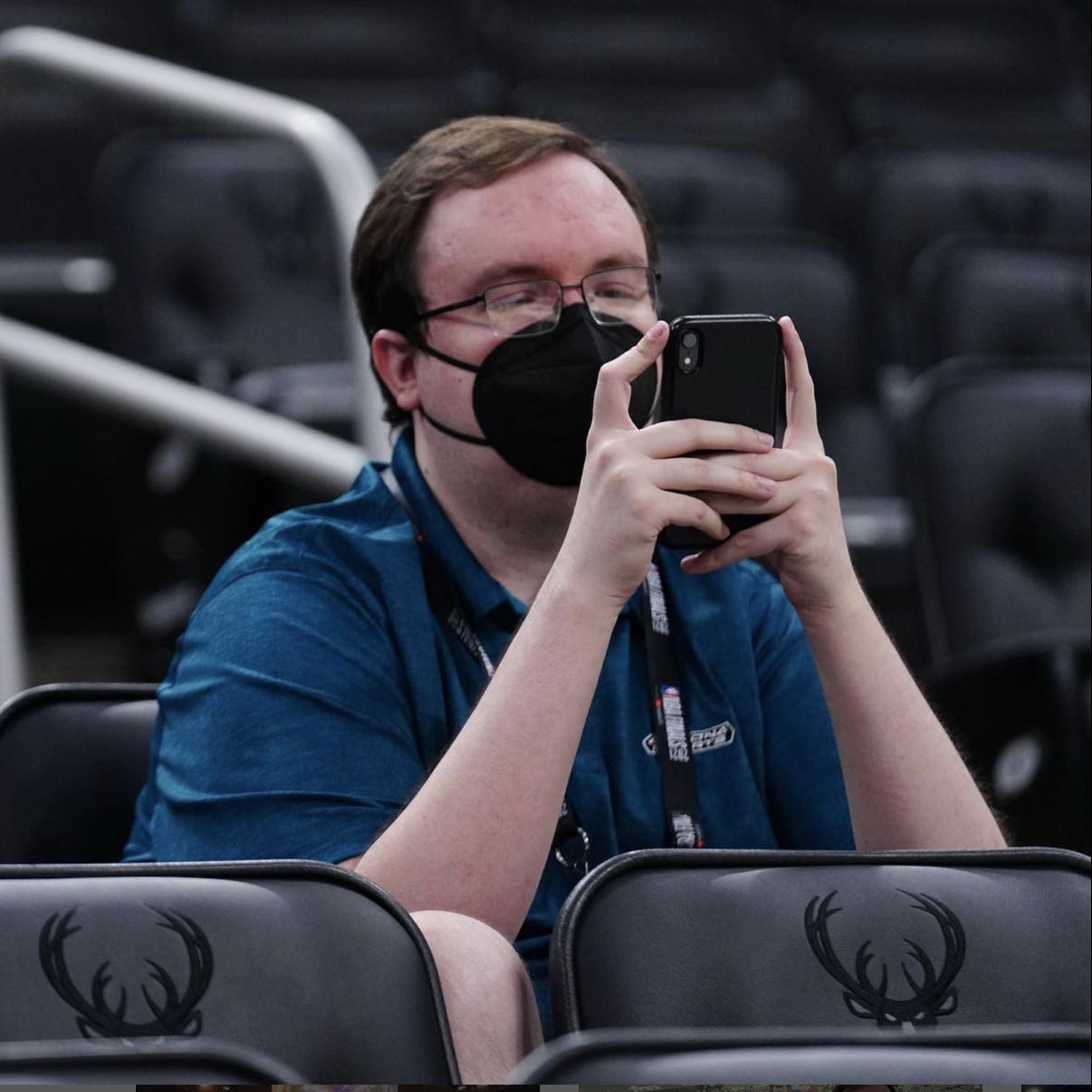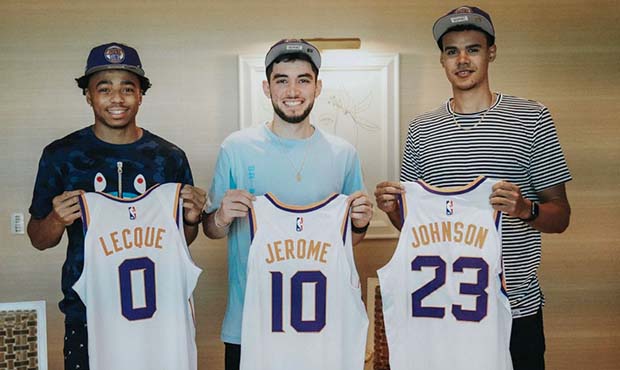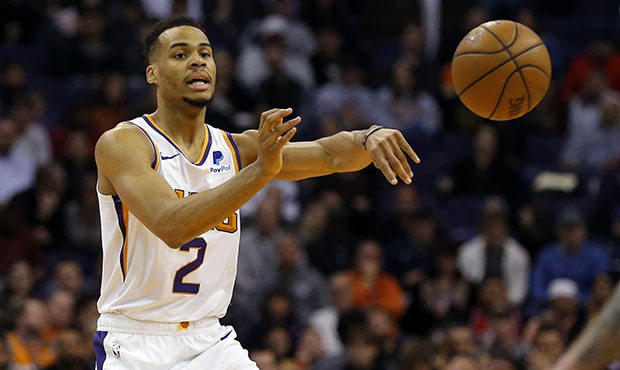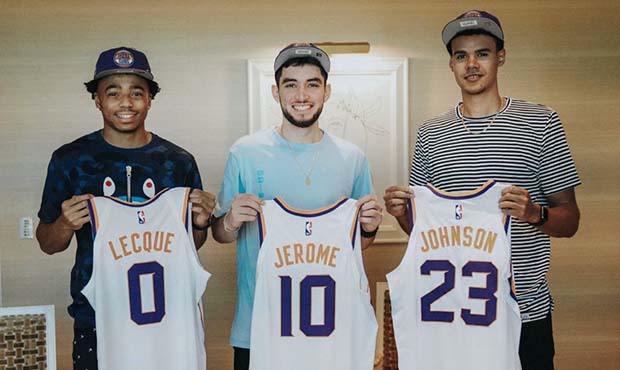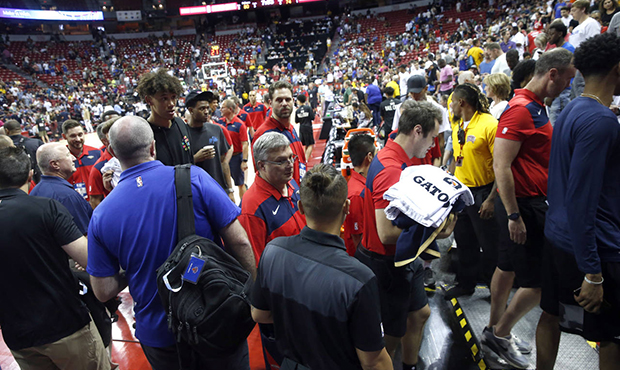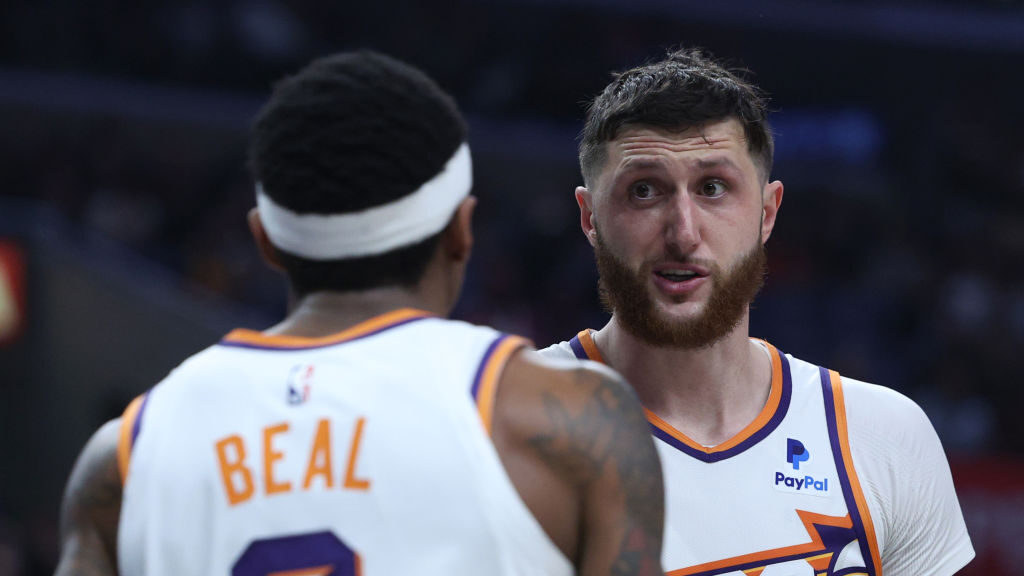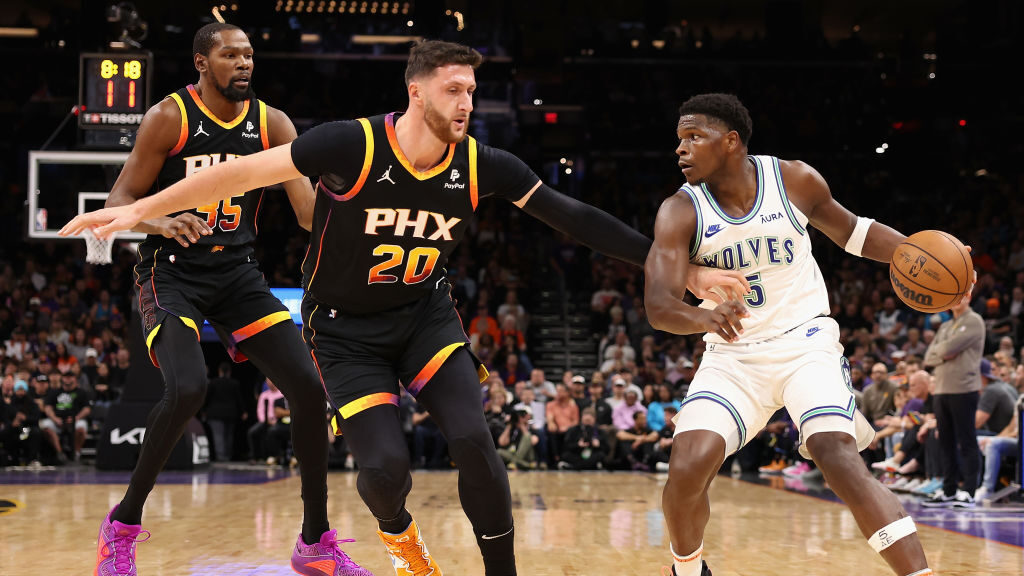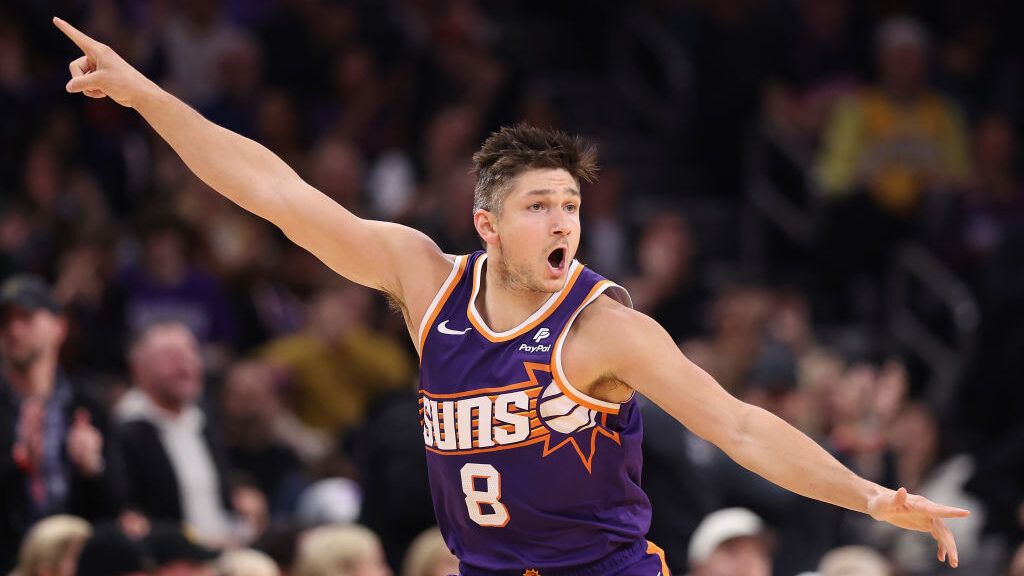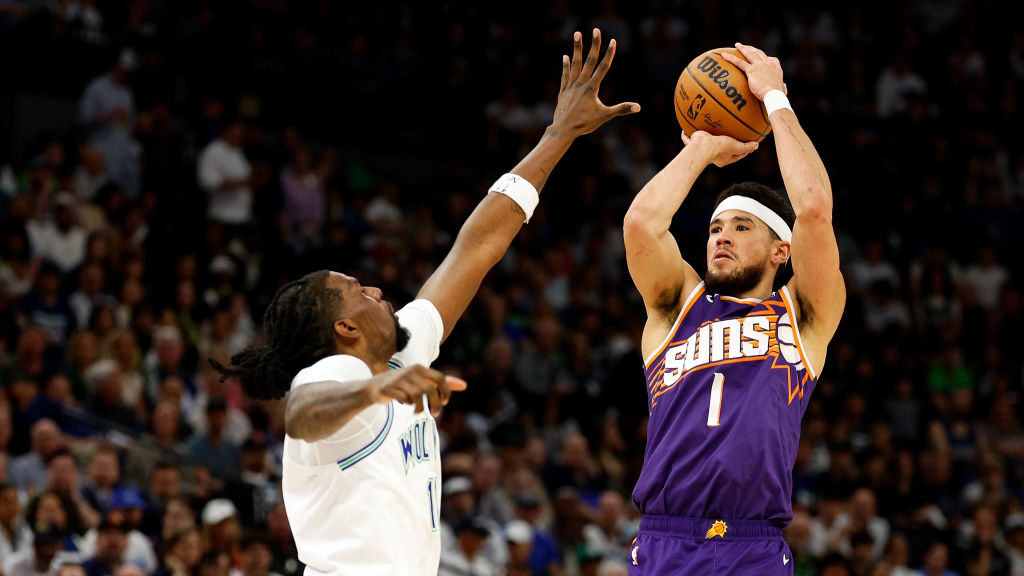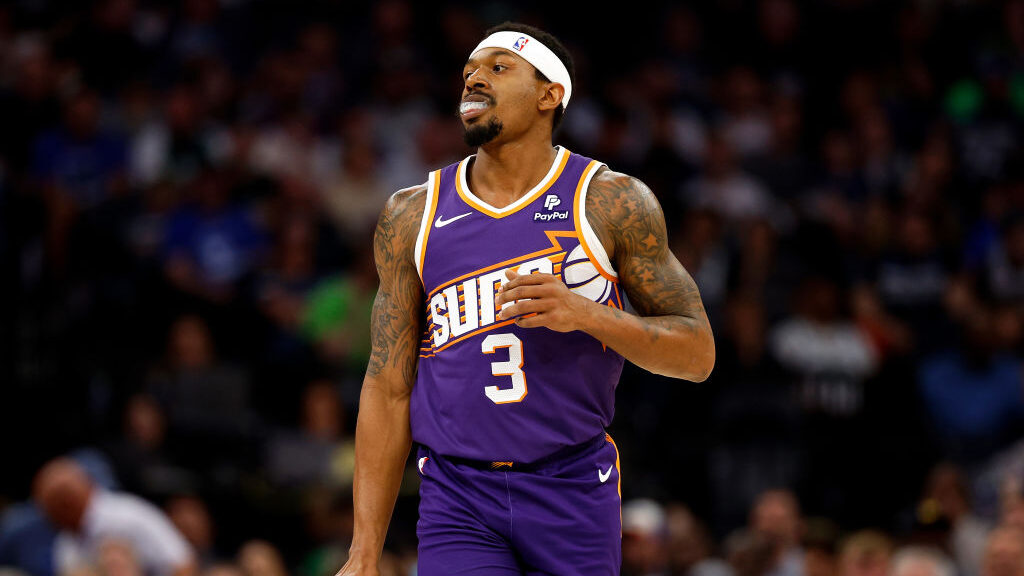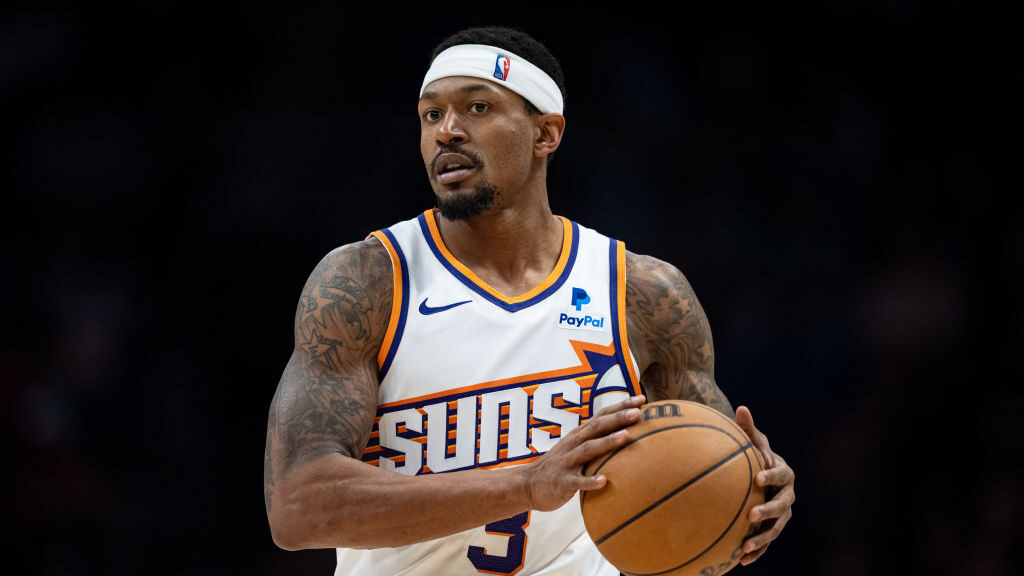Suns GM Jones comments on trading T.J. Warren, Josh Jackson
Jul 9, 2019, 9:03 PM | Updated: 10:57 pm
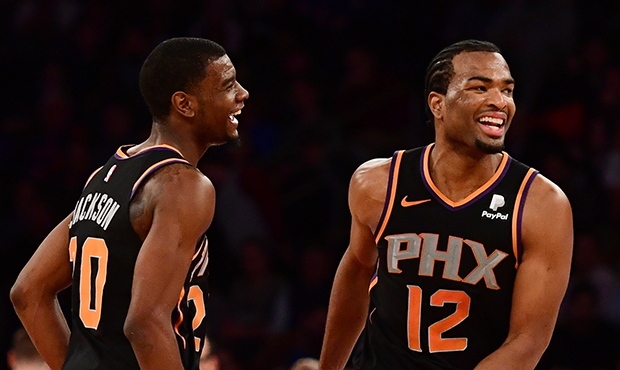
Josh Jackson #20 and T.J. Warren #12 of the Phoenix Suns react during the final minutes of the fourth quarter of the game against the New York Knicks at Madison Square Garden on December 17, 2018 in New York City. The Phoenix Suns won 128-110. (Photo by Sarah Stier/Getty Images)
(Photo by Sarah Stier/Getty Images)
LAS VEGAS — On Tuesday at the NBA Summer League in Las Vegas, the Phoenix Suns introduced new free agent signing and point guard Ricky Rubio.
In order to sign Rubio to a 3-year, $51 million deal while making other moves possible at the same time during a busy offseason, the Suns had to move on from forward T.J. Warren and wing Josh Jackson.
Warren was the longest-tenured member of the roster prior to his departure in a trade to the Indiana Pacers while Jackson, the No. 4 overall pick in the draft two years ago, was dealt to the Memphis Grizzlies.
When asked about the decision to move them in order to make a signing like Rubio feasible, general manager James Jones didn’t overcomplicate it.
“It’s just the maturation of a team,” he said. “When we looked at our team, we knew our two young building blocks were Devin (Booker) and Deandre (Ayton) and so every move we made after that was really to add guys that would complement and help them become better players.
“The guys that we moved on from are great players, they’re great talents — we wish them the best. But when you’re building a team you have to make tough decisions so we made decisions that we thought would help us and (added) proven guys that would help us.”
Both Warren and Jackson had their faults and Phoenix had logical reasons to deal the duo.
Despite Warren’s improvements as a scorer and 3-point shooter last season, his biggest weaknesses being passing and defense didn’t accentuate Ayton and Booker well. Players like Mikal Bridges and Kelly Oubre Jr. have proven to be easier fits sandwiched in-between the two franchise pillars.
Jackson failed to improve in his second year, only giving glimpses of the superduper role player swiss army knife so many expected him to be out of Kansas. Instead of secondary playmaking and explosive versatility defensively, Jackson was a reckless, inefficient scorer for the Suns.
Both players combine to make $17 million next season, the amount of Rubio’s annual average salary.
There was a price to pay in trading them.
The Pacers taking on Warren cost the Suns the No. 32 pick in the draft and Phoenix only received cash in return. Jackson had two second-round picks and point guard De’Anthony Melton attached en route to Memphis.
But the cost-benefit analysis for Jones was clear: he used the space dealing those two players to bring in Rubio, a defense- and pass-first point guard who will help Booker and the Suns’ backcourt on the defensive end just as much as he helps Ayton and the Suns’ frontcourt on the offensive end.
Neither Warren or Jackson could come close to that claim on offense or defense, let alone the fact that Rubio fills a direct need at point guard for the next three seasons.

